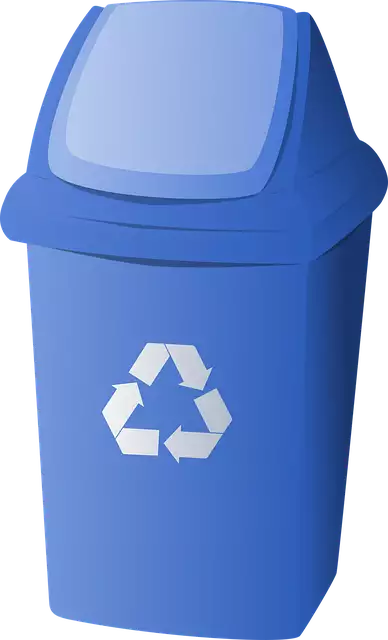The Ohio Department of Transportation (ODOT) is leading the way in sustainable infrastructure by promoting the use of recycled glass pavement. Their stringent recycling standards encourage the inclusion of ODOT-approved recycling materials like ground glass in highway construction, reducing environmental impact and costs. This approach enhances road durability, friction management, and safety while diverting waste from landfills. Case studies, including Toledo's successful implementation, highlight the benefits of using odot-approved recycling materials for highways, setting a benchmark for other states to follow in adopting eco-friendly and long-lasting pavement solutions.
Discover the innovative and sustainable solution transforming infrastructure development with recycled glass pavement. This cutting-edge technology, embraced by Ohio’s Department of Transportation (ODOT), leverages recycled content to reduce environmental impact and enhance durability.
Learn about stringent ODOT-approved recycling standards and how they ensure the quality and strength of these materials for highway construction. Explore the multifaceted benefits, from cost savings to reduced carbon footprint, and examine real-world case studies of successful recycled glass pavement implementations across Ohio.
- Understanding Recycled Glass Pavement: A Sustainable Solution
- Ohio Department of Transportation (ODOT) and Recycling Standards
- The Role of Recycled Materials in Highway Construction
- Benefits of Using Recycled Glass in Infrastructure Development
- Case Studies: Successful Implementation of Recycled Glass Pavement
Understanding Recycled Glass Pavement: A Sustainable Solution
Recycled glass pavement is a growing trend in sustainable construction, offering an innovative solution for both environmental and economic considerations. This approach leverages one of the most abundant and readily available resources on Earth—glass—to create a durable and aesthetically pleasing surface for roads and highways. By using recycled glass as a primary component in pavement, we not only reduce the demand for new materials but also minimize the environmental impact associated with traditional asphalt production.
The Ohio Department of Transportation (ODOT) has recognized the potential of this technology and established recycling standards that promote the use of odot-approved recycling materials Toledo. These standards ensure that recycled glass is properly processed and incorporated into pavement mixtures, maintaining or even improving upon the performance and quality of conventional pavements. This shift towards sustainable practices not only benefits the environment but also ensures cost-effective solutions for highway maintenance and construction, making it a promising game-changer in the industry.
Ohio Department of Transportation (ODOT) and Recycling Standards
The Ohio Department of Transportation (ODOT) plays a significant role in promoting sustainable practices within the state’s transportation infrastructure. One such initiative is their support for the use of recycled materials, particularly in pavement construction. ODOT has established recycling standards that ensure the quality and safety of road surfaces while reducing the environmental impact of highway maintenance. These standards encourage the incorporation of odot-approved recycling materials toledo, such as crushed glass, into asphalt pavements.
By adopting these practices, ODOT contributes to a more circular economy by giving new life to waste materials like glass. This approach not only minimizes the need for virgin resources but also helps in managing the growing volume of recycled glass generated across Ohio. The department’s focus on recycling materials for highways aligns with global efforts to create more sustainable and environmentally conscious infrastructure, ensuring that our roads are built with a reduced carbon footprint.
The Role of Recycled Materials in Highway Construction
The incorporation of recycled glass into pavement construction is a growing trend in highway projects across the country, including initiatives in Toledo and beyond. This innovative practice aligns with state-mandated ODOT recycling standards, which aim to promote sustainable construction methods while reducing environmental impact. By utilizing odot-approved recycling materials like ground glass, contractors can significantly enhance the durability of pavements while diverting substantial amounts of waste from landfills.
This approach not only contributes to a greener infrastructure but also offers economic benefits. Recycled glass is often more cost-effective than virgin aggregate, potentially leading to significant savings on public works projects. Moreover, its incorporation improves pavement performance by enhancing friction and providing better moisture management, which translates into safer road conditions and reduced maintenance costs over time.
Benefits of Using Recycled Glass in Infrastructure Development
The incorporation of recycled glass into pavement and infrastructure development offers numerous environmental and economic advantages. One of the key benefits is the significant reduction in waste that ends up in landfills. By using recycled glass as odot-approved recycling materials toledo, states can meet their recycling standards efficiently while mitigating the environmental impact of construction projects. This sustainable practice not only conserves natural resources but also minimizes the energy consumption associated with producing new glass from raw materials.
Additionally, recycled glass pavements contribute to a more durable and resilient infrastructure. Glass has exceptional strength and durability, making it suitable for high-traffic areas and highways. As recycling materials for highways, ground glass can enhance the binding properties of asphalt or concrete mixtures, resulting in stronger and longer-lasting road surfaces. This, in turn, reduces maintenance costs and extends the lifespan of transportation networks, ensuring better value for public investments in infrastructure development.
Case Studies: Successful Implementation of Recycled Glass Pavement
Several successful case studies highlight the effectiveness and benefits of using recycled glass in pavement applications. One notable example is the project undertaken by the Ohio Department of Transportation (ODOT) in Toledo, Ohio. They successfully incorporated odot-approved recycling materials toledo into their highway maintenance and construction projects, demonstrating a viable solution for managing excess glass and enhancing road surface durability.
The ODOT recycling standards ensure that only high-quality, carefully processed glass is used in these pavements. This initiative not only reduces the environmental impact of disposal but also provides a sustainable alternative for highway construction. The recycled glass pavement has shown promising results in terms of longevity, texture, and overall performance, meeting or exceeding industry expectations. This case study serves as a model for other states and infrastructure authorities considering recycling materials for highways, further promoting eco-friendly practices in the transportation sector.


